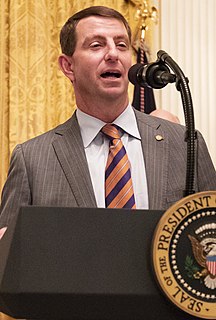A Quote by Rene Descartes
The principal use of prudence, of self-control, is that it teaches us to be masters of our passions, and to so control and guide them that the evils which they cause are quite bearable, and that we even derive joy from them all.
Related Quotes
All of us have many habits of whose import we are quite unaware, since they were formed without our knowing what we were about. Consequently they possess us, rather than we them. They move us; they control us. Unless we become aware of what they accomplish, and pass judgment upon the worth of the result, we do not control them.
Even though you try to put people under control, it is impossible. You cannot do it. The best way to control people is to encourage them to be mischievous. Then they will be in control in a wider sense. To give your sheep or cow a large spacious meadow is the way to control him. So it is with people: first let them do what they want, and watch them. This is the best policy. To ignore them is not good. That is the worst policy. The second worst is trying to control them. The best one is to watch them, just to watch them, without trying to control them.
Brutes are deprived of the high advantages which we have; but they have some which we have not. They have not our hopes, but theyare without our fears; they are subject like us to death, but without knowing it; even most of them are more attentive than we to self-preservation, and do not make so bad a use of their passions.
Holding onto and manipulating physical objects is one of the things we learn earliest and do the most. It should not be surprising that object control is the basis of one of the five most fundamental metaphors for our inner life. To control objects, we must learn to control our bodies. We learn both forms of control together. Self-control and object control are inseparable experiences from earliest childhood. It is no surprise that we should have as a metaphor-a primary metaphor-Self Control is Object Control.
We like to look for patterns and find connections in unrelated events. This way we can explain them to ourselves. Life seems neater, or at least less messy. We need to feel we are in control: it is integral to our self-esteem. We also know, though we deny it, that we are not in control. So we settle for the illusions of control. What if we stopped fooling ourselves?
In the present state of the world, it is evident that the control we have gained of physical energies, heat, light, electricity, etc., without having first secured control of our use of ourselves is a perilous affair. Without the control of our use of ourselves, our use of other things is blind; it may lead to anything.
Obesity is the result of a loss of self-control. Indeed, loss of self-control might be said to be the defining social (or anti-social) characteristic of our age: public drunkenness, excessive gambling, promiscuity and common-or-garden rudeness are all examples of our collective loss of self-control.







































